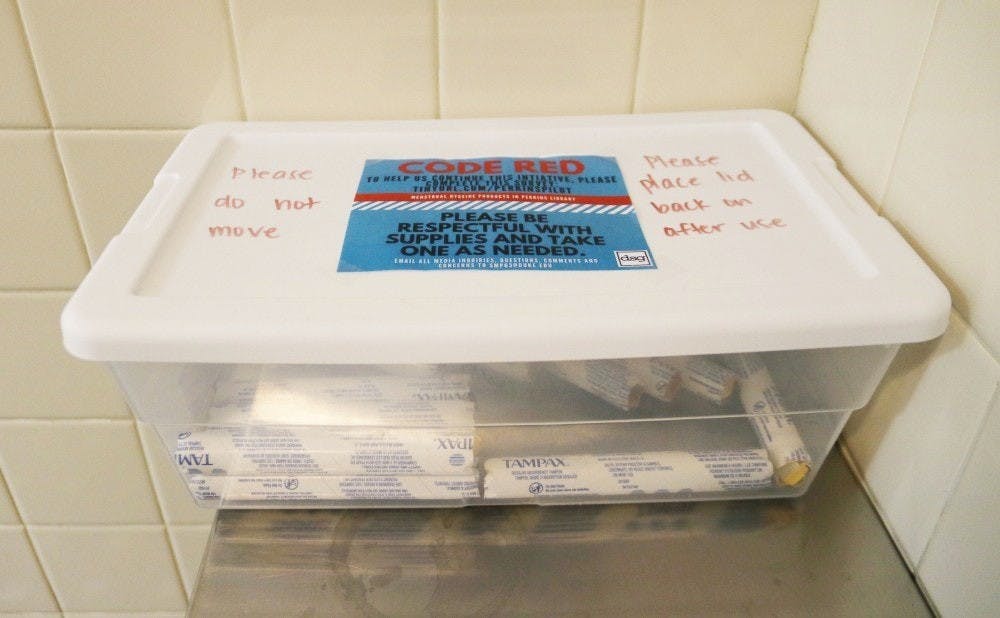As the menstrual hygiene access movement continues to spread across college campuses nationwide, Duke is also making a change.
By 2019, bathrooms in Perkins Library will be permanently stocked with free menstrual hygiene products. Code Red—a coalition of student activists dedicated to promoting access to menstrual products—presented to Duke Student Government earlier in the semester and helped to usher in the change. The move follows a pilot initiative beginning in January 2017 that stocked the Bryan Center bathrooms with menstrual products.
“Previously, the administration thought that we had enough free menstrual hygiene products being provided in the Bryan Center, but students spend a significant amount of time in Perkins, and there is a need for products there,” said senior Sabriyya Pate, leader of Code Red.
To prove this need, Code Red launched its own pilot program in the library this past spring. With permission from library staff, the organization placed free menstrual hygiene products in Perkins bathrooms and had representatives each week restocking the products and collecting data on usage.
They found a high demand for the products, as supplies were always depleted by the time of each weekly restocking, Pate explained.
Equipped with the results from the pilot program, Code Red prepared a proposal outlining its findings and advocating for Duke to permanently implement the program in Perkins. This past September, three seniors in Code Red—Hannah Ahrendt, Elle Chen and Pate—presented the proposal to Leslye Kornegay, director of university environmental services, and Mark Barker, director of security and facility services for Duke Libraries.
In addition to their data, they were armed with a petition signed by 1,400 students, staff and faculty and a Duke Student Government resolution in support of the proposal.
After the meeting, Code Red received confirmation from Kornegay that facilities management is putting the gears in motion to place menstrual hygiene products in Perkins. Barker cited the success of the student-run pilot program as critical to the decision to move forward with the proposal.
“We did a pilot project with the students last spring which worked out very successfully and seemed like a great feasible program," he told The Chronicle. "We also worked with [environmental services] on making sure the infrastructure exists for them to supply the hygiene products.”
Perkins staff is currently working to change the existing coin-operated pad and tampon dispensers in bathrooms to no longer require coins. Meanwhile, facilities management is allocating the funds to be able to provide the menstrual products in women’s and gender-neutral restrooms by mid-January of 2019, Kornegay said.
“You don’t have to identify as a woman to be menstruating," Pate said on why menstrual products won't be in just women's restrooms. "We want to be respectful and inclusive for all the transgender students on campus.”
Ahrendt expressed optimism about the new policy and what it could lead to.
“Many students spend hours upon hours in Perkins, and if a student bleeds through their pad or tampon—or gets their period unexpectedly—it is a huge comfort to know that menstrual hygiene supplies are available in the Perkins restrooms," she said. "We hope that this will be the first step in following in suit with peer institutions, such as Harvard, where menstrual hygiene products are provided by the university throughout campus.”
Efforts to increase access to menstrual hygiene products do not end here. Pate expressed hopes for future Code Red initiatives that will be explored in the coming semester, including pilot programs in either Wilson or Brodie Gym and menstrual products in dorms.
Get The Chronicle straight to your inbox
Signup for our weekly newsletter. Cancel at any time.

